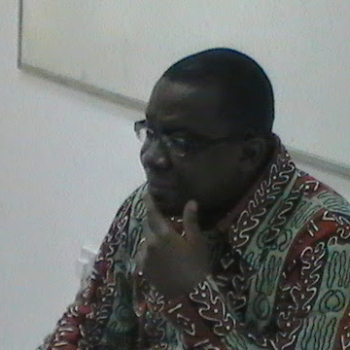To be violent or not to be violent: Can counselling be a panacea?

| +233201192484 | |
| pkabaddo@uew.edu.gh | |
| Download CV |
To be violent or not to be violent: Can counselling be a panacea?
To be violent or not be violent: Can counselling be a panacea?
*Bedu-Addo, P.K.A. (Ph.D)
University of Education, Winneba
&
Ashmond, Charles
University of Education, Winneba
The study focused on youth- related violence in the Agona West Municipality in Ghana. Using explanatory sequential mixed methods approach, a sample of eighty-six (86) was obtained, using purposive and snowballing sampling techniques. Questionnaire and interview guides were used for data collection. Two research questions and two hypotheses undergirded the study. Descriptive (simple frequency counts and percentages) and inferential (independent sample t–test statistics were used to analyse the quantitative data while the qualitative data was analysed thematically. The study found that forms of youth violence in the Agona West Municipality were: threats and intimidation, mob attacks; physical attacks; bullying such as beating and slapping; causing damage to proprieties and armed robberies. Also, the causes of youth violence included: fighting, violent and usage of abusive words; divorce; lack of parental guidance; bad friends influence; influence of alcohol and drugs; lack of education and employment. Furthermore, demographic information of the youth contributed significantly to youth violence. Measures to curb youth violence included: government should establish counselling centers in our communities, guidance and counselling coordinators at the various schools/churches and in the communities should sensitize parents on the need to take responsibilities of their wards. Moreover, there should be re-education programmes in the community, hands on training, technical/vocational training and skills-based programmes for the youth. It was recommended that parents should train their children on how to use decent language, Additionally, it was recommended that Ghana Education Service should place much emphasis on guidance and counselling education at all levels of Ghana’s educational system. Finally, guidance coordinators should be equipped to perform their roles effectively.
Keywords: youth violence, threats, re-education, mob attacks
